
Eczema and rosacea are two skin conditions both of which may be characterized by rash, bumps, redness and itching. The mentioned diseases are chronic and may cause different complications if not treated properly or not treated at all.
More about Rosacea
Rosacea is a skin disorder predominantly affecting the face. It is a cause of severe blushing/flushing and redness of the affected skin. The skin lesions are in a form of bumps, emphasized tiny blood vessels, pimples and pustules. There is also certain degree of skin redness and swelling. Small and tiny blood vessels become more prominent in time which contributes to even more aesthetic problems. The skin inflammation and accompanying skin lesions are unappealing and are sometimes hard to be brought under control.
The condition is more reported in women, especially fair-skinned women. The explanation may lie in hormonal changes a woman's body is frequently undergoing. Many times rosacea affects women who are about to enter menopause. This explains potential connection with hormonal imbalance.
However, people of any age including children may be affected by rosacea. Apart from the mentioned there are several more theories regarding underlying causes of rosacea and these include exposure to temperature extremes, sunburns, stress, menstruation, use of certain cosmetic products (especially those containing alcohol), facial scrubbing, intake of spicy food, excess of caffeine, some medications and alcohol.
Initially, characteristic skin changes affect the nose, cheeks, chin and forehead and may eventually spread to other parts of the body. Permanent inflammation may eventually cause rhinophyma, enlargement of the nose in such a way that the organ appears bulbous and ruddy in appearance.
Rosacea patients may be treated with different drugs including antibiotics, antifungal medications, retinoids and benzoyl peroxide. Steroid creams can be beneficial but are used only for a short period of time. Laser treatment destroys superficial blood vessels and finally, disfiguring rhinophyma is surgically corrected.
More about Eczema
Eczema is a common skin condition associated with redness of the affected skin, itching sensation and sometimes crusting. Scratching of the affected skin and rubbing in order to alleviate itchiness may only make the skin look worse and cause secondary bacterial infection.
The eczematous skin eventually becomes thick, cracked and there may additionally be skin discoloration, blistering, crusting and scalying.
Depending on the type of eczema patients may have different parts of the skin affected and they develop characteristic skin changes. People of all ages may develop eczema. Sometimes, the condition is hereditary and it can also be associated with a person's profession.
The eczematous skin must be kept clean, well moisturized and any secondary infection must be properly prevented. Depending on the type of eczema patients may be prescribed different topical or oral medications. While topical steroids and immunomodulators can be used for a short time only (even though they efficiently eliminate itching and redness), oral antihistamines are administered for longer period of time, especially if itching is severe. Additional help is obtained from moisturizers. One is supposed to avoid harsh cosmetic products and hot showers.


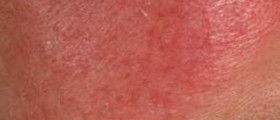
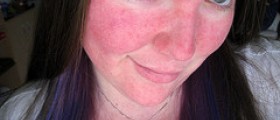

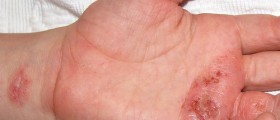


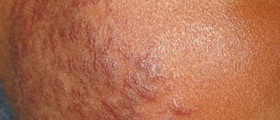
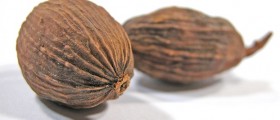
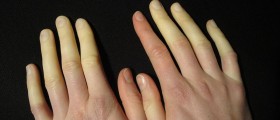

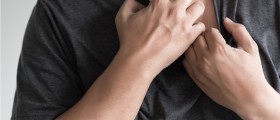
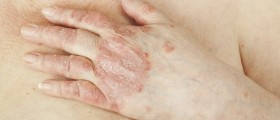

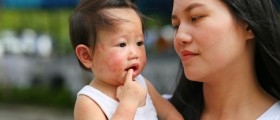
Your thoughts on this
Loading...